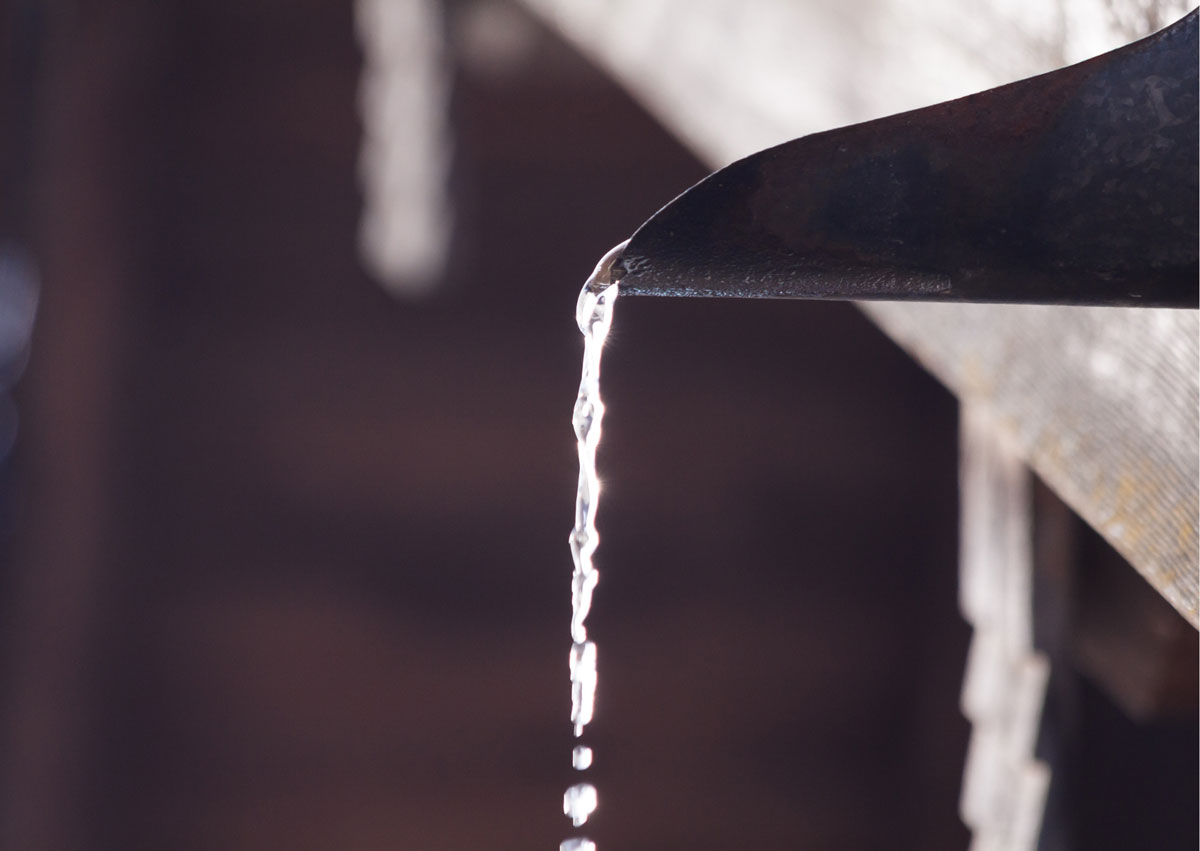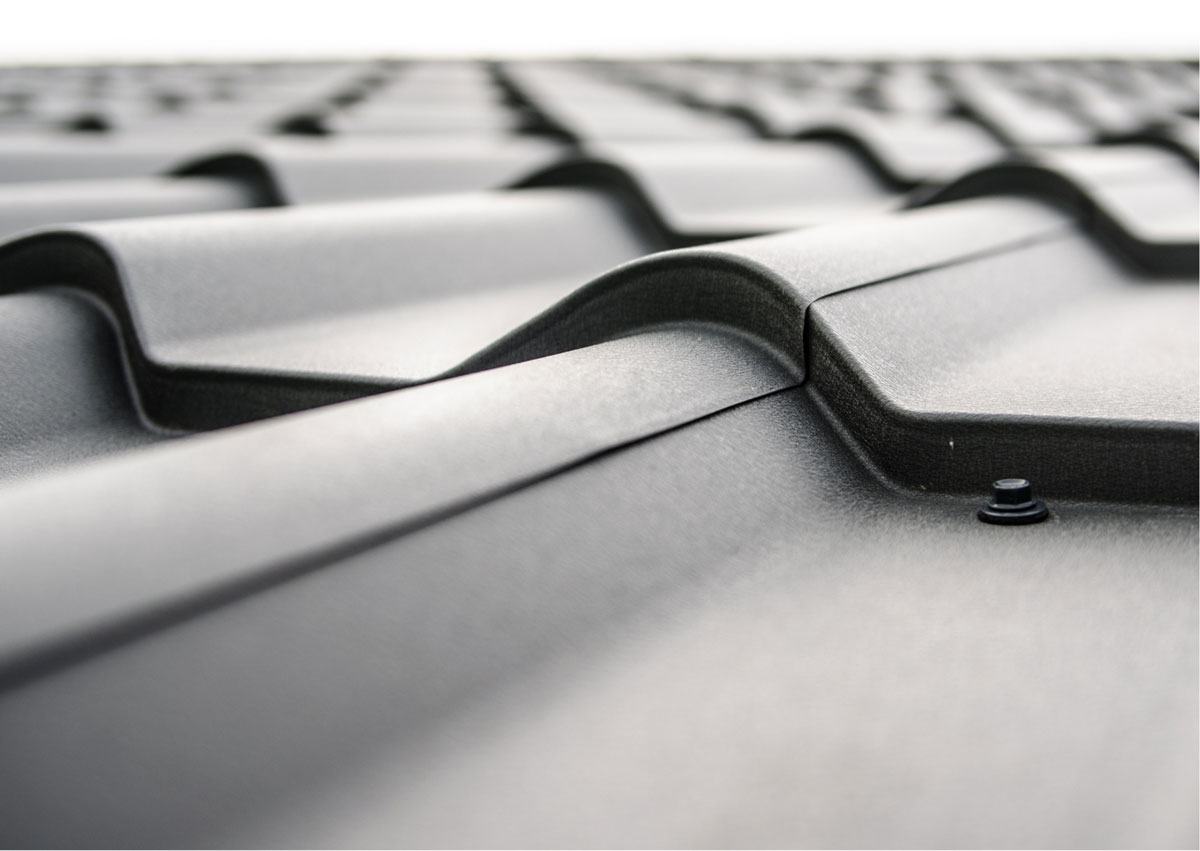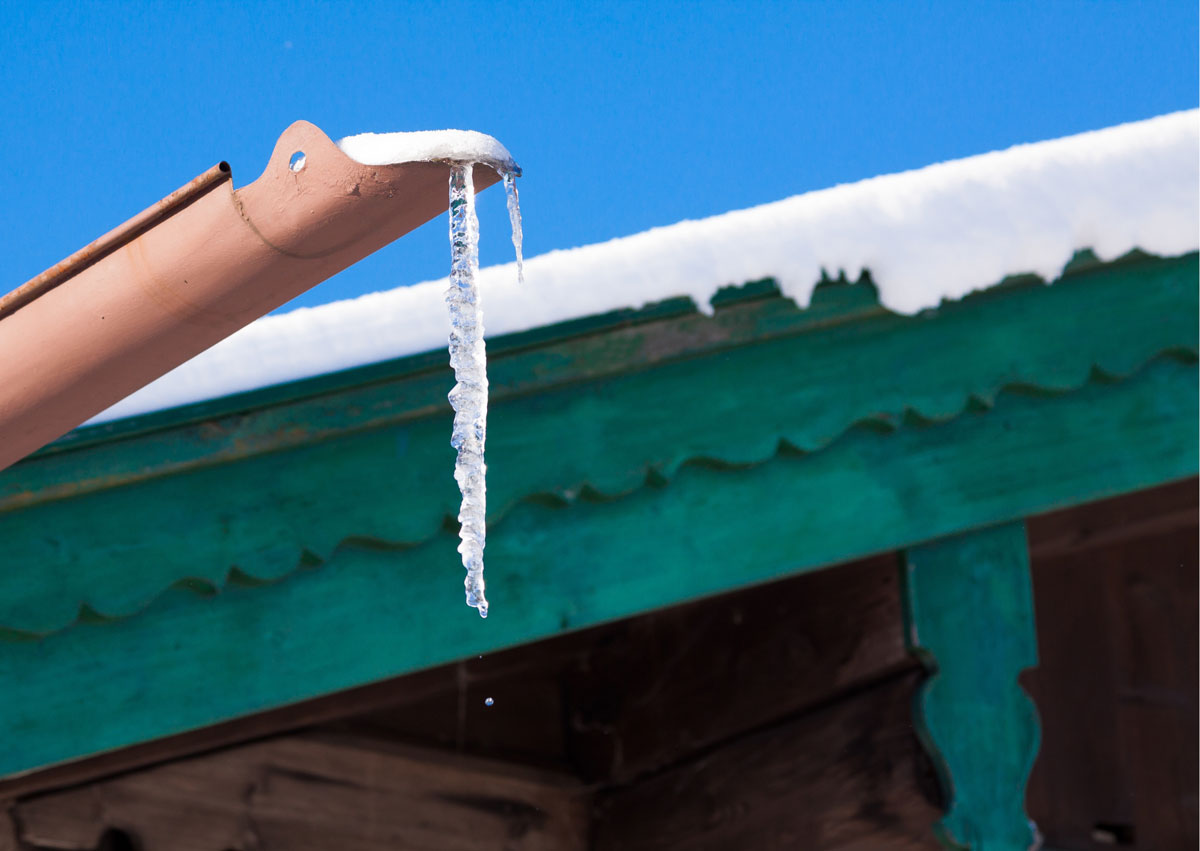
What You Need to Know About Gutter Damage
Gutters are an important part of any home’s roofing system. They are responsible for channeling rainwater away from the roof and foundation of the house, preventing water damage and other related problems. However, gutters are exposed to harsh weather conditions, and over time they can become damaged. In this article, we will discuss what you need to know about gutter damage.
Types of Gutter Damage
There are several types of gutter damage that homeowners should be aware of:
Rust
Rust is a common problem that occurs in metal gutters, especially in regions with high humidity and rainfall. Over time, exposure to moisture and oxygen can cause metal gutters to oxidize, leading to rust formation. Rust can weaken the gutters and cause holes to form, which can lead to leaks and other damage to your home.
If you notice rust on your gutters, it’s important to address the problem as soon as possible. Neglecting to address rust can lead to further deterioration of the gutters, and can cause water damage to your home’s foundation and structure.
The first step in dealing with rust is to remove any debris or other materials that may be blocking the affected area of the gutter. This can include leaves, twigs, or any other buildup of debris that could be exacerbating the rusting process. Once the area is clear, you can use a wire brush or sandpaper to remove any loose rust and other debris from the affected area.
After removing the rust, it’s important to repair the affected area. This can be done by applying a sealant or rust inhibitor to the area to prevent further rust formation. In some cases, the affected area may need to be patched or replaced entirely.
To prevent rust from forming in the future, it’s important to maintain your gutters properly. Regular gutter cleaning and maintenance can help prevent rust and other types of damage, and can ensure the longevity and proper functioning of your gutters. Additionally, consider installing gutter guards to prevent debris buildup in your gutters, which can exacerbate rust formation.
In conclusion, rust is a common problem that can occur in metal gutters over time. Addressing rust promptly can prevent further damage to your gutters and protect your home from water damage. Regular maintenance and cleaning can prevent rust and other types of damage, and can ensure that your gutters function properly for years to come.
Cracks
If gutters are made of vinyl or plastic, they can crack due to temperature changes, age, or impact from falling debris.
Gutters made of vinyl or plastic are generally less susceptible to rust than metal gutters, but they are not immune to other types of damage. One common problem that can occur with vinyl or plastic gutters is cracking.
Cracks in gutters can be caused by a variety of factors, including temperature changes, age, and impact from falling debris. In areas with extreme temperatures, the expansion and contraction of the gutters can cause stress on the material, leading to cracks. Additionally, as vinyl and plastic gutters age, they can become brittle and more susceptible to cracking.
Impact from falling debris, such as tree branches or hail, can also cause cracks in gutters. Even small cracks can lead to leaks, which can cause water damage to your home’s foundation and structure.
If you notice cracks in your gutters, it’s important to address the problem as soon as possible. Small cracks can be repaired using a sealant or patch, while larger cracks may require the replacement of the affected section of the gutter.
To prevent cracks from forming in the future, it’s important to maintain your gutters properly. Regular cleaning and maintenance can help prevent debris buildup and other types of damage, which can weaken the material and lead to cracking. Additionally, consider installing gutter guards to prevent debris buildup and reduce the impact of falling debris.
Cracks are a common problem that can occur in vinyl or plastic gutters due to temperature changes, age, or impact from falling debris. Addressing cracks promptly can prevent leaks and water damage to your home. Regular maintenance and cleaning can prevent cracks and other types of damage, and can ensure that your gutters function properly for years to come.
Related Post: Tips to find the Best Roofing Contractor
Blockages
Debris such as leaves, twigs, and dirt can accumulate in gutters, causing blockages that prevent water from flowing properly.
Blockages in gutters are a common problem that can lead to serious water damage to your home. Debris such as leaves, twigs, and dirt can accumulate in gutters over time, preventing water from flowing properly and leading to overflowing gutters, water damage to your home’s foundation and structure, and even roof damage.
One of the main causes of blockages in gutters is the buildup of debris. When gutters are not cleaned regularly, debris can accumulate and form blockages, preventing water from flowing freely through the gutter system. This can cause water to overflow and spill over the sides of the gutters, potentially causing water damage to your home’s foundation and structure.
Blockages can also cause damage to your roof. When water is unable to flow freely through gutters, it can back up onto the roof, causing water to seep under shingles and other roofing materials. This can lead to leaks, rot, and other types of roof damage.
To prevent blockages in your gutters, it’s important to clean your gutters regularly. This can be done by removing any debris such as leaves, twigs, and dirt from the gutters and downspouts. You can use a scoop, a trowel, or a garden hose to remove the debris. Consider installing gutter guards to prevent debris from accumulating in your gutters in the first place.
If you notice any blockages in your gutters, it’s important to address the problem as soon as possible. This can involve removing the blockage manually, using a garden hose to flush out the blockage, or using a plumber’s snake or other tools to dislodge the blockage.
Blockages in gutters are a common problem that can lead to serious water damage to your home. Regular cleaning and maintenance can help prevent blockages
Related Post: Roof Extensions : Popular Roof Designs
Sagging
Gutters are an important component of any home’s exterior system as they are designed to channel rainwater away from the roof and the foundation of the house. However, gutters can sometimes become loose or pull away from the house, causing them to sag and not function correctly. This is a common problem that can lead to a range of issues if left unaddressed.
One of the most common reasons why gutters sag is due to the weight of debris that has accumulated in them, such as leaves, twigs, and dirt. When gutters become clogged, rainwater cannot flow freely through them, and this can cause the gutters to become overloaded and eventually sag. In addition to debris, sagging gutters can also be caused by age, wear and tear, and exposure to the elements.
Sagging gutters can lead to a variety of problems for homeowners, including damage to the roof, siding, and foundation of the home. When gutters are not functioning correctly, rainwater can overflow and damage the fascia boards and soffits, leading to wood rot and mold growth. Additionally, water that is not properly directed away from the foundation can cause erosion and weaken the structural integrity of the home.
To prevent gutters from sagging, it is important to keep them clean and free from debris. Regular maintenance, such as cleaning and inspecting the gutters, can help identify any issues early on and prevent them from becoming more severe. Additionally, it may be necessary to replace or reinforce gutters that are already sagging to ensure they function properly and protect your home from water damage.
Sagging gutters can cause significant damage to a home if left unaddressed. It is essential to maintain gutters regularly to prevent them from becoming clogged and overloaded. If gutters do begin to sag, it is important to address the issue promptly to avoid more significant problems in the future.
Related Post: Design Trends for Commercial Spaces in 2023
Corrosion
If gutters are exposed to acidic rainwater or chemicals, they can corrode and weaken, leading to damage.
Corrosion is a major concern for gutters, especially if they are exposed to acidic rainwater or chemicals. When gutters are constantly exposed to these corrosive elements, they can begin to weaken and deteriorate, eventually leading to damage.
Acidic rainwater is a common source of corrosion for gutters. As rain falls through the atmosphere, it can pick up pollutants and become acidic, with a pH level lower than 5.6. When this acidic rainwater flows through gutters, it can cause corrosion, particularly if the gutters are made of metal such as steel or aluminum. Over time, the corrosion can weaken the gutters and cause them to leak, crack or collapse.
Another source of corrosion is exposure to chemicals. Chemicals such as fertilizers, pesticides, and cleaning agents that are used around the home can also cause corrosion to gutters. If these chemicals come into contact with the gutters, they can cause the protective coating to wear off, which can lead to corrosion.
Corrosion can have serious consequences for gutters and the home they protect. When gutters corrode, they can become weak and prone to cracking or collapsing, which can lead to water damage to the home’s foundation and roof. Corrosion can also cause gutters to become unsightly, which can reduce the home’s curb appeal and overall value.
To prevent corrosion from damaging gutters, it is important to take preventative measures. This includes regular cleaning to remove debris and contaminants that can cause corrosion, as well as applying a protective coating to the gutters. In some cases, homeowners may also choose to replace metal gutters with non-corrosive materials, such as vinyl or plastic.
In conclusion, corrosion is a major concern for gutters, and it can lead to significant damage if left unaddressed. To prevent corrosion, homeowners should take proactive measures, including regular cleaning and maintenance, protective coatings, and potentially replacing gutters with non-corrosive materials. By taking these steps, homeowners can ensure their gutters remain strong and reliable, protecting their homes from water damage and improving their overall appearance.
Effects of Gutter Damage
When gutters are damaged, they can cause several problems, including:
Water damage
If gutters are clogged or not functioning correctly, water can overflow and seep into the foundation of the house, causing water damage.
Mold and Mildew
If gutters are clogged or not functioning correctly, water can overflow and seep into the foundation of the house, causing water damage.
Pests
Clogged gutters can be a breeding ground for pests such as mosquitoes, rodents, and other insects.
Roof Damage
When water is not properly channeled away from the roof, it can lead to roof damage and leaks.
Repairing Gutter Damage
Repairing gutter damage depends on the type and extent of the damage. For minor damage such as small cracks or blockages, homeowners can clean gutters themselves or use a professional gutter cleaning service. However, for more severe damage such as rust or sagging gutters, it is best to contact a professional gutter repair service.
Preventing Gutter Damage
Preventing gutter damage is essential to ensure the longevity and proper functioning of gutters. Regular gutter cleaning and maintenance can prevent blockages and sagging gutters. Homeowners should also ensure that gutters are installed correctly and have proper drainage to prevent water from pooling.
In conclusion, gutters are an essential part of a home’s roofing system, and gutter damage can cause several problems such as water damage, mold, and pest infestation. Homeowners should be aware of the types of gutter damage, its effects, and ways to prevent and repair it. By taking preventive measures and regularly maintaining gutters, homeowners can ensure the longevity and proper functioning of their gutters.





